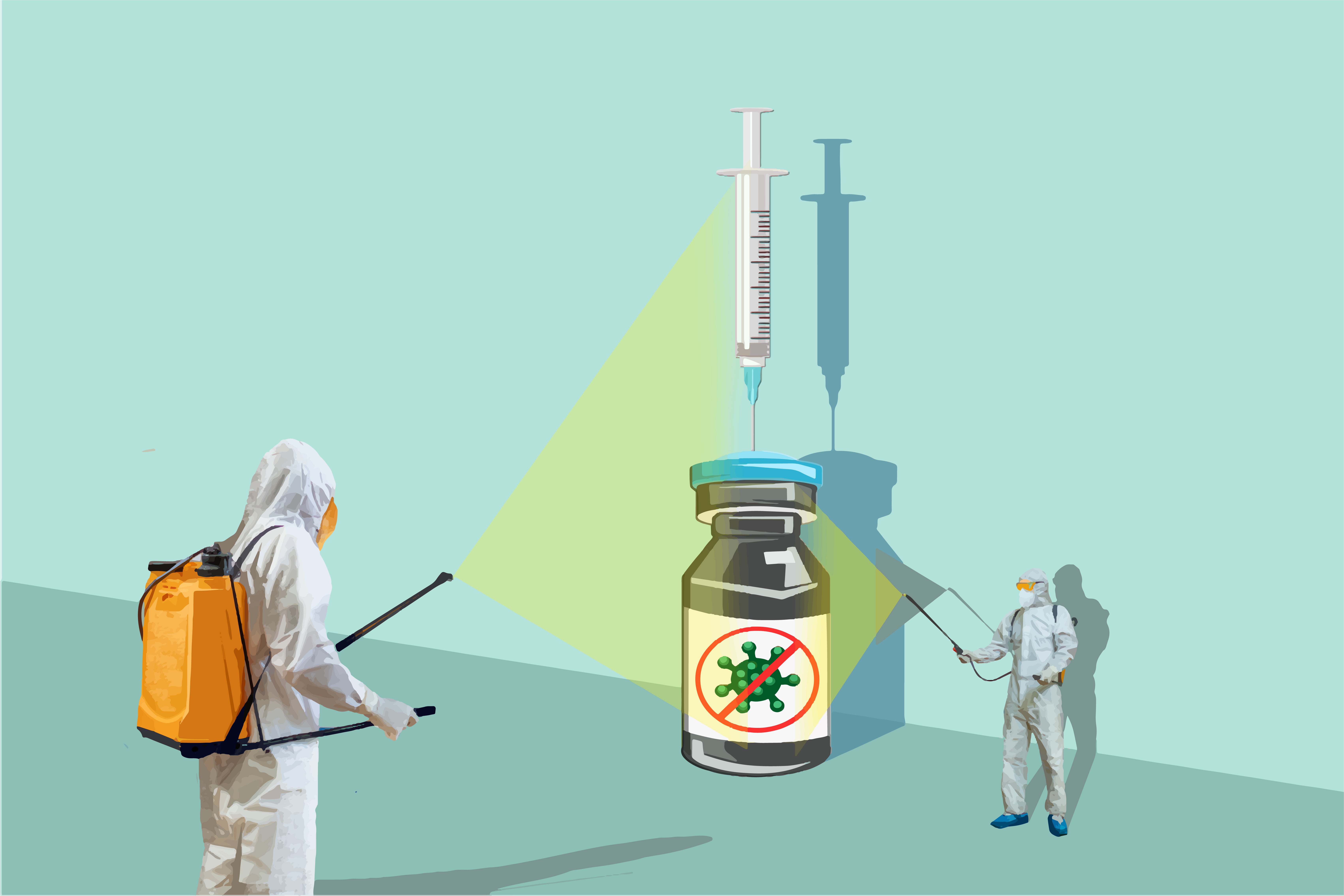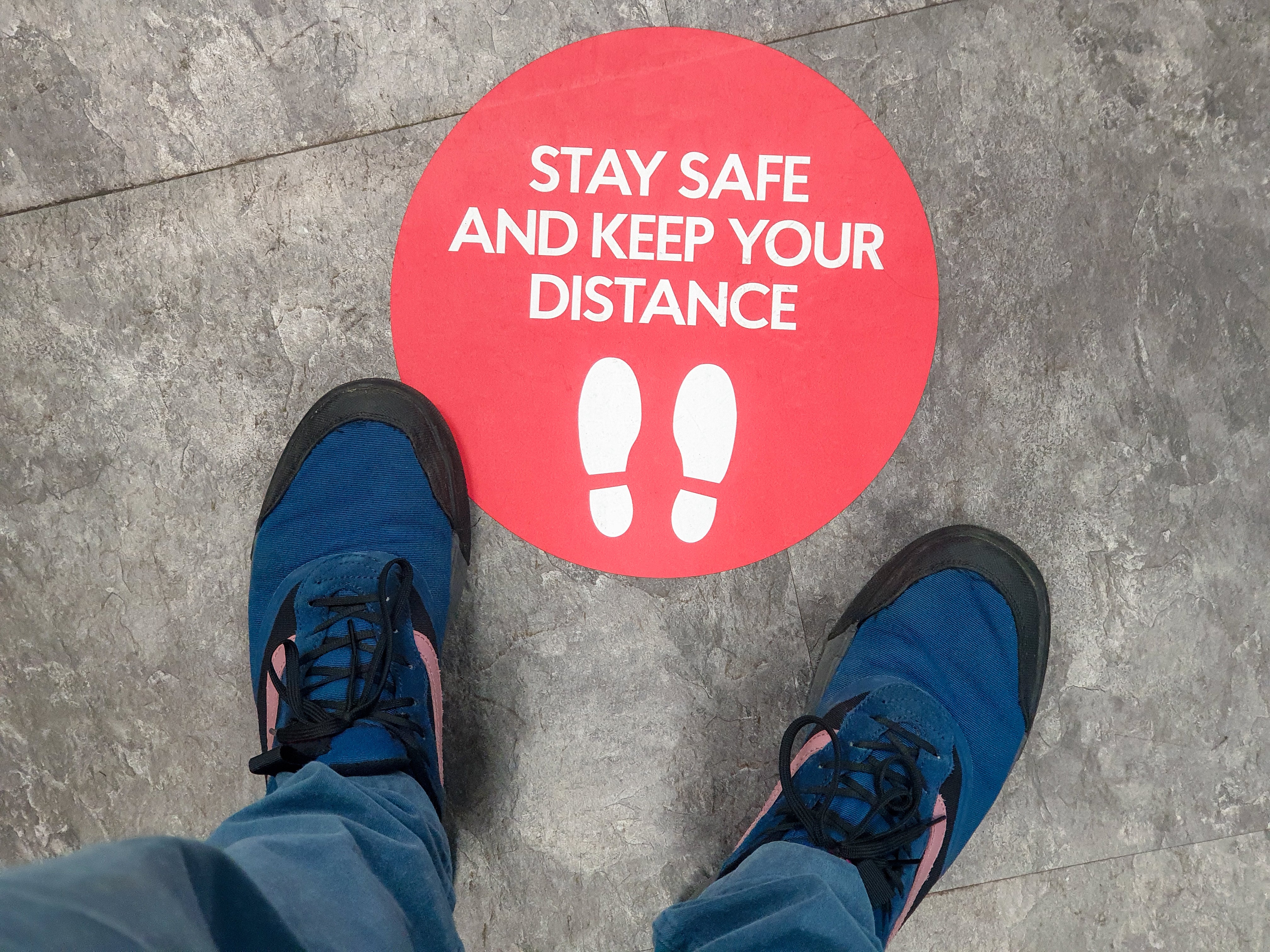The Independent's journalism is supported by our readers. When you purchase through links on our site, we may earn commission.
Will we ever return to our pre-coronavirus lives?
As we wait for news of a lockdown end-date, Sophie Gallagher asks if life will ever return to a world resembling 2019 or if some form of restriction will become our new normal?


Your support helps us to tell the story
From reproductive rights to climate change to Big Tech, The Independent is on the ground when the story is developing. Whether it's investigating the financials of Elon Musk's pro-Trump PAC or producing our latest documentary, 'The A Word', which shines a light on the American women fighting for reproductive rights, we know how important it is to parse out the facts from the messaging.
At such a critical moment in US history, we need reporters on the ground. Your donation allows us to keep sending journalists to speak to both sides of the story.
The Independent is trusted by Americans across the entire political spectrum. And unlike many other quality news outlets, we choose not to lock Americans out of our reporting and analysis with paywalls. We believe quality journalism should be available to everyone, paid for by those who can afford it.
Your support makes all the difference.In spring last year, during the first nationwide coronavirus lockdown - an unprecedented modern event on British soil - many asked in tabloid headlines, in Whatsapp groups, and around dinner tables, how we would explain the period to future generations. The new draconian rules we found ourselves suddenly living under were so disconnected from most of our before lives that it seemed inconceivable to explain to those not experiencing it.
Then, a meme began circulating on social media asking - what would happen if this in fact became the new normal? If it replaced our previous lives so drastically, that explaining the non-hand washing anarchy of 2019 became even harder to comprehend than the social implosion of 2020.
Prime Minister Boris Johnson famously promised that the UK could “turn the tide” on Covid-19 in just 12 weeks. That was almost a year ago. Now, as the UK death toll has long surpassed 100,000, we have a new homegrown strain under our belts, and the anniversary of that first lockdown sits on the horizon, the country remains under a third “stay at home” order with no fixed end date.
Although UK vaccine numbers are inspiringly high (as of 11 February, over 15 million people had received the first dose and 500,000 have had both doses), meaning the rollout is well on track to meet its target of every adult by September (and likely much sooner), we still feel a long way from the much-dreamt-about fantasy end point where we’d all be released from quarantine to hug our families and head to a packed pub.
Those who have had the vaccine have been told to continue social distancing for now, as it is not known how much the vaccination programme will reduce spread of the virus in the community, rather than just protect those who get it from becoming seriously ill (although early data does show some promising reduction signs). Once the rollout is complete this risk is expected to further diminish, but it does still present the issue of the unvaccinated.
Although we’ve seen other countries returning to normal: the original virus epicentre, Wuhan, has famously hosted pool parties, and some experts, including a SAGE advisor, Professor John Edmunds, have said that Britain could be “more or less free” by Christmas 2021, there is reason to be cautious. New Zealand, which had virtually eradicated community transmission for several months, had to instigate a strict lockdown in Auckland in February after some new cases of Covid-19 slipped through the net.
Now, politicians are adopting a different language from simple eradication, and instead talking about coexisting with Covid-19. Health Secretary, Matt Hancock said in mid-February, that it could become akin to the flu - an illness that we live alongside as a “treatable disease”. An illness that can be vaccinated against but probably requires annual (or more frequent) booster jabs for new and emerging strains. On 15 February, England’s Chief Medical Officer Chris Witty told a press conference that in the future it may only be necessary for the vulnerable to get an annual vaccine booster, rather than the whole population. Although this, again, is far from set in stone.
It is clear that we are going to have to live with the virus – it won’t be going anywhere
So will we ever reach our final day of Covid or wake up to a world resembling something like 2019 when lockdowns and bubbles were words with very different connotations?
Will coronavirus just end?
Coronavirus arrived seemingly overnight. Although the lag time between the first case in China and arriving in the UK was several weeks (and perhaps longer), there was a moment in which Covid did not exist in the UK. The first case happened on 29 January. This clear delineation between before-Covid and after-Covid does lend itself to (optimistic) hoping that the opposite could be true - that it could be eliminated. But is this the right way to think about it?
Michael Head, senior research fellow in global health at the University of Southampton, tells The Independent that Covid-19 will not simply disappear and will in fact remain endemic within our societies “for many years to come, and probably decades”. “There will need to be a continuous battle to tackle new outbreaks as and when they happen,” he says.
Lawrence Young, virologist and professor of molecular oncology at Warwick Medical School, agrees: “It is clear that we are going to have to live with the virus – it won’t be going anywhere!” But that is not to say that it will be like 2020 and 2021 forever. Professor Young says he has identified factors which he believes will mark a turning point.
These are: most of the adult population being vaccinated, operating an effective test, trace and isolate system, having a follow-up vaccination plan or new vaccines based on the levels of herd immunity and more information about new strains in circulation.
So how will the vaccine help get us there?
With the widespread rollout of the vaccine, can we begin to feel more positive about our future living alongside Covid? Will this get us to a point where all vaccinated people are safe and we can basically go back to our old way of living once the last jab is administered? Head says: “Vaccines are undeniably a crucial tool in getting the burden of Covid-19 down to very low levels, and it’s an excellent achievement to have them being rolled out so quickly.”
But there is reason to be cautious and not see this as a total solution. Not least because we must remember the outcomes of all the vaccine trials were not 100 per cent efficacy. Although they were high enough rates to be deemed a success, and approved by rigorous testing boards, it does not promise that no one who has had the vaccine can ever be made ill by coronavirus. This is the same as the annual influenza vaccine. It is not definitive protection, it just helps. Modelling done by SPI-M, part of Sage, suggested the UK needs jabs to cut transmission by 85 per cent to avoid another spike.

Dr Simon Clarke, associate professor of cellular microbiology, at Reading University, says: “That’s still a perfectly respectable [trial] result, but will leave a lot of people susceptible to infection. There are other unknown factors too. Firstly, how long will any immunity last, either post-infection or from a vaccine. It may be the case that as infection decreases, we become susceptible only to a milder form of the disease, but we cannot be sure of that.”
Additionally, there will always be those who remain unvaccinated for various reasons. Ian Jones, Professor of virology, also at Reading University, says the way to look at vaccination is as “a broad control but not absolute protection”. “The likelihood is that as immunity in the population builds the circulation of the virus will fall but that there will always be a hardcore of individuals who do not take the vaccine (or cannot be reached) that will remain susceptible.”
Lockdowns will remain a potential weapon in the public health armoury
Due to this potential for continued outbreaks, albeit smaller and more localised than in 2020-2021, will the government need to ever resort to drastic management techniques like lockdowns again? Boris Johnson promised in mid-February that once the third lockdown was lifted it would be “irreversible”. But Head says any potential small outbreaks after the vaccine has been rolled out, could require this type of non-medical intervention: “That may include local lockdowns, restrictions on numbers of people who can meet, or requirements to work from home if at all possible”.
Clarke agrees that they will be a last resort, but are not totally off the table. “Lockdowns will remain a potential weapon in the public health armoury and we should be aware that in future, not every call for its use will actually be justified.”
How should we think of Covid in the future?
Increasingly, there are more voices - including the health secretary - suggesting that long-term it will be more useful to see Covid-19 as a virus that joins the long list of existing seasonal illnesses. Those that are occasionally very serious, and result in spikes in hospital case numbers (the annual flu season often leads to a winter bed crisis for the NHS). A virus that goes from being a danger to life for many people, to one that we can coexist with but still want to treat with care.
In a post-vaccine world Covid would look much more like the other 30 or so respiratory infections that humans have lived with for millennia
Jones says: “In short, the virus was new, which is why it triggered the pandemic, but relatively soon it will no longer be something the immune system has not seen before and its ability to infect without resistance will be lost.” Even with any more new mutant strains, Jones says that their room for manoeuvre, and therefore spread, will be increasingly hemmed in by vaccine programmes. “So the evolution of a more lethal [strain] in the face of immunity is not likely in my view. It is more likely to become attenuated with time.”
Professor Robert Dingwall, who sits on the government’s Nervtag [New and Emerging Respiratory Virus Threats Advisory Group] says it is the fear and upheaval of Covid that has led us all to want to look for comfort in a total elimination approach, with zero cases. “[It] seems so attractive - as a way to get rid of a serious threat,” he says. “In a post-vaccine world, however, endemic Covid would look much more like the other 30 or so respiratory infections that humans have lived with for millennia.
“The [vaccine] will make Covid more like the sort of low-level infection that everyone would get from time to time, a small number of people might get with sufficient severity to require hospital treatment, and, for a few, it would be what they happen to die from. Much like seasonal influenza, but perhaps on a slightly bigger scale.”
Although Professor Young warns it might take “a few years” to get to this point.

With vaccines and a flu-style mindset, can we return to our old lives?
If we accept that the vaccine is our strongest tool to address the Covid threat, and that with the vaccine programme, the virus will gradually be sidelined to a seasonal illness like others we are familiar with, does that mean we can begin to transition back to our old ways of doing things: no face masks, no social distancing, no hand sanitiser and the return of international holidays?
On 15 February, it was reported that government scientists want to keep social distancing measures in place for the foreseeable future, including keeping a “one metre plus” rule. Although this has not been confirmed.
Clarke predicts: “I think things will return to normal vis-à-vis masks/distancing/events/travel, but there will be no excuse not to have proper planning in place to stop any of those things at very short notice. While I feel that we will eventually get back to normal, probably not until next year at the earliest.” Young agrees that 2022 will see more normality but perhaps we can expect a “good Christmas celebration”.
Head says he expects there to be some lessons taken forward - and not all these practices left in 2021. “I would expect there to be requirements to wear masks when entering care homes or hospital settings for a while yet.” Young says we might still wear facemasks in high risk situations (like public transport) and pay continued attention to hand hygiene. Jones says people may choose to keep wearing masks in public, as is more common in east Asian countries post SARS, because it helps reduce other seasonal illnesses.
Dingwall says it is worth noting that once these post-crisis safety practices become established they are harder to scale down. He makes the comparison to airport security in the post 9/11 period. Once this type of “security theatre” is in place it becomes something that people expect to see to feel reassured. Clarke agrees saying that coronavirus will remain in our collective consciousness in this way.
Clarke suggests that businesses like pubs, restaurants and cinemas, will be adapted to mitigate the worst effects. It has been suggested that places like nightclubs could use rapid turnaround lateral flow tests to test customers in the queue before they go inside. “We may find, particularly in winter months, that we need to live more distanced lives where people aren’t corralled into densely populated environments like busy pubs or cinemas; that will require adjustment of models.”
We may find, particularly in winter months, that we need to live more distanced lives
Likewise, it could see cultural changes rather than just pragmatic ones. Dr Clarke previously told The Independent that no longer can people go into the office with sniffles and just presume it is a cold. “Think how many times you’ve gone into work and people come in with colds. But an ordinary sniffle – people cannot assume that it is a cold this year because it might be something much more significant. Normally if you have that and take time off work that is frowned upon but I cannot possibly see how that will be allowed.”
What about getting on a plane? Head says any international travel is a potential infection control risk and may be subject to quarantine when outbound or returning. “The pandemic spread globally via small numbers of imported cases, and community transmission then took hold and here we are, two million deaths later. All countries will need to remain vigilant.”
Clarke says: “It will and should be in our minds more-or-less permanently. In that respect I don’t think there will be any escape from it, but that’s not nearly as bad as it being an eternal dampener on our daily lives.”



Join our commenting forum
Join thought-provoking conversations, follow other Independent readers and see their replies
Comments